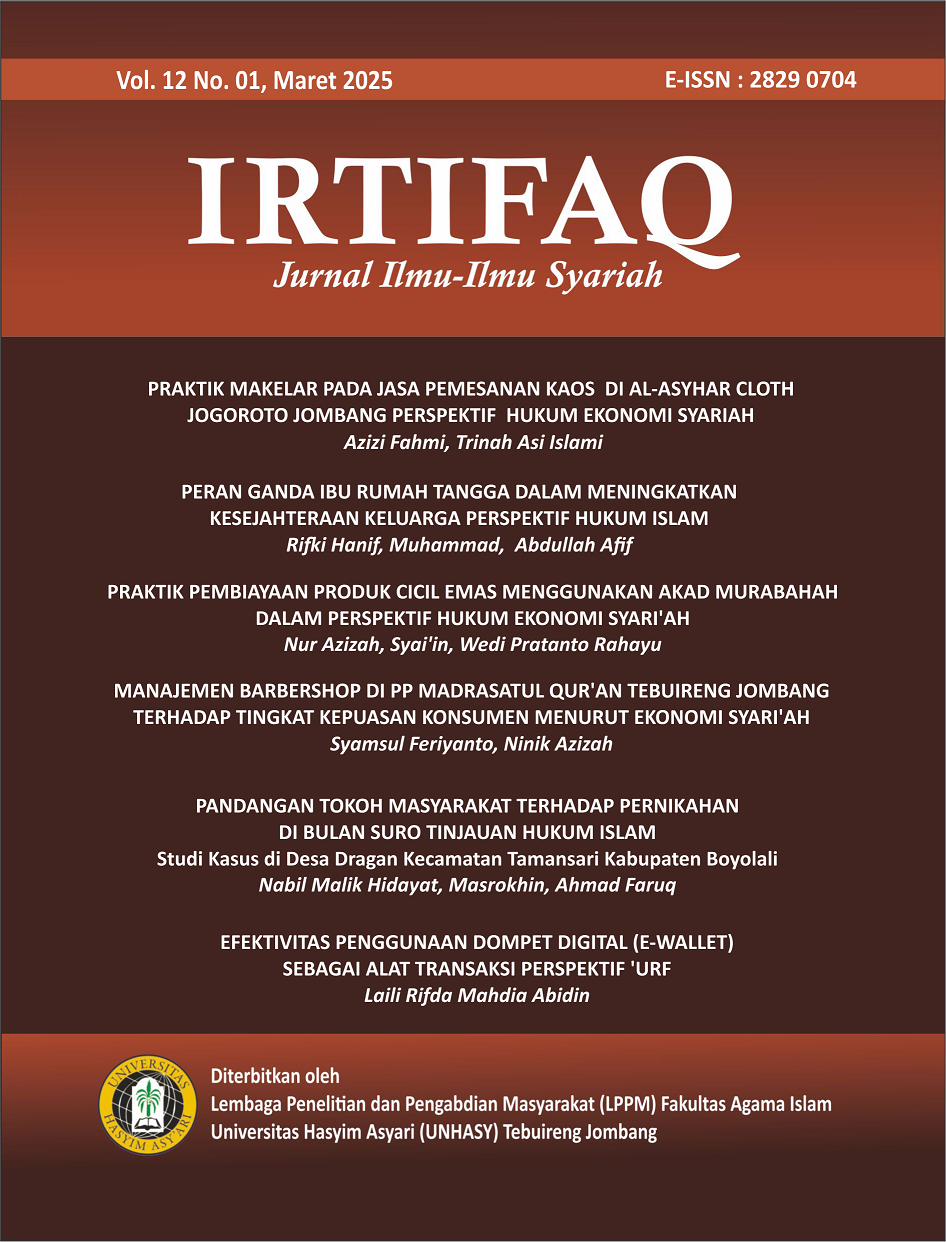PRAKTIK MAKELAR PADA JASA PEMESANAN KAOS DI AL-ASYHAR CLOTH JOGOROTO JOMBANG PERSPEKTIF HUKUM EKONOMI SYARIAH
BROKER PRACTICES IN T-SHIRT ORDERING SERVICES AT AL-ASYHAR CLOTH JOGOROTO JOMBANG PERSPECTIVE SHARIA ECONOMIC LAW
Abstract
This Article discusses broker practices in T-shirt ordering services at Al-Asyhar Cloth, Jogoroto Village, District. Jogoroto, Kab. Jombang. The ijarah contract agreement between the Al-Asyhar Cloth business owner and the broker is carried out verbally. The research method used is an empirical juridical method with a conceptual approach. This data collection uses observation, interview, documentation and library data techniques. The data analysis technique used is inductive and descriptive methods. The research results show that brokering practices in the Al-Asyhar cloth t-shirt ordering service involve sellers and brokers. The mechanism that occurs is that Al-Asyhar Cloth asks brokers to sell or market convection goods in the shop. However, in providing wages, Al-Asyhar Cloth did not fulfill its obligations in accordance with the initial agreement which stipulated 10% of total sales, but instead provided them in stages of 5%. From the results of the broker's practice at Al-Asyhar Cloth, Sharia Economic Law states that renting the benefits (services) of the broker's work is allowed. However, in this case, not fulfilling the initial agreement by Al-Asyhar Cloth is considered impermissible because it contains elements of injustice in fulfilling rights and obligations which are contrary to Islamic beliefs
Downloads
Downloads
Published
How to Cite
Issue
Section
License

This work is licensed under a Creative Commons Attribution 4.0 International License.
Ini adalah sebuah jurnal akses terbuka, yang berarti bahwa semua konten yang tersedia secara bebas tanpa biaya kepada pengguna atau / nya lembaganya. Pengguna yang diizinkan untuk membaca, download, menyalin, mendistribusikan, cetak, mencari, atau link ke teks lengkap dari artikel, atau menggunakannya untuk tujuan yang sah lainnya, tanpa meminta izin terlebih dahulu dari penerbit atau penulis.
This is an open access journal, which means that all content is freely available without charge to the user or his/her institution. Users are allowed to read, download, copy, distribute, print, search, or link to the full texts of the articles, or use them for any other lawful purpose, without asking prior permission from the publisher or the author.


